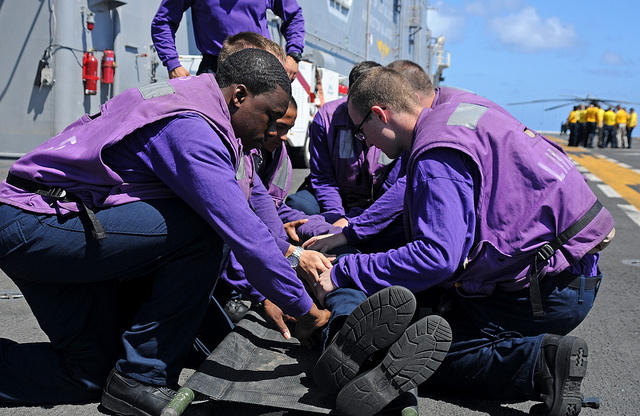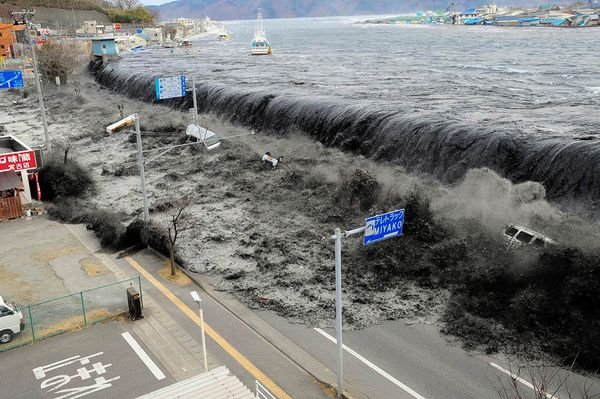
Insurance of any kind is never a fun subject to research and think about, but unfortunately it’s a necessity. Like vaccinations, this is quite a divisive subject, and there is definitely not one correct answer to this question. Many people never bother with travel insurance, and other people would never travel without it. Most of this has to do with your own personal situation, who you’re traveling with, comfort level, and risk-taking ability.
BootsnAll partners with several companies to offer travel insurance, and we have recommendations for different groups of travelers:
Travel insurance vs. Trip protection
There are two main aspects to “travel insurance.” The more frivolous aspect has to do with insuring your belongings while on the road, and insuring tickets or tours you’ve already paid for in case they get canceled and/or the operator goes out of business. It’s pretty easy to make a case that this sort of insurance isn’t really worthwhile. Hopefully you aren’t bringing possessions with you that would financially devastate you if they were lost or stolen. And if your $300 backpack goes missing, the process of getting reimbursed for it can be a major headache.
If you use mainly reputable airlines and agencies, you minimize the risk of having your trip yanked out from under you with no refund. And if you pay with credit cards in the first place you usually have a good system to get a refund even if the worst should happen.
But the travel health insurance part can be a tricky question. Even if you have great health insurance at home, you may not be covered abroad. Granted, most health care in less developed countries is going to be much, much cheaper than it would be in the United States, but if something really bad happens, it could ruin you financially.
Serious injuries

People selling these policies remind us that they cover things like being airlifted to the nearest proper medical facility if you are injured a long way from one (in a country like Laos, where medical facilities are scarce and not up to par with most western hospitals). Or worse, if you are seriously injured, and it makes sense for you to be transferred home, there are policies that cover being airlifted back to your country of residence.
All policies are different, so be sure that you do your homework and read the fine print on everything. You may have to purchase an extra policy to cover these types of emergencies, and there will always be a cap as to how much the insurance company will pay. This cap obviously depends on how much you are willing to spend up front. Some travelers choose to bypass the regular health insurance in favor of an emergency evacuation policy. The thinking behind this is that it’s often just as cheap and far less of a headache to just pop into a doctor’s office or hospital while abroad for minor sicknesses and injury and pay out of pocket. Most countries that aren’t the United States have cheap walk up medical care that won’t bankrupt you, so dealing with claims for what amounts to a small amount of money isn’t worth it to some people.
Consider extreme sports
Of course, the type of trip you are planning should be taken into consideration as well. If you are mainly going from city to city with an occasional beach thrown in, you might not need to be so concerned. But if you (or your kids if you’re a traveling family) will be doing a lot of trekking and climbing and adventure activities, your chances of a major injury are much greater, so travel insurance might make sense.
Most policies don’t cover extreme sports, but each company defines extreme sports differently. Make sure you verify what is covered and what isn’t. If your trip will be an active one, you can always add an extreme sports rider onto your policy, for an extra fee of course. Again, not everything will be covered, but it will tell you specifically which activities are covered and which ones aren’t. Be diligent in your research as there’s no gray in these policies. Some consider bike riding an extreme sport not covered by your regular policy, so if you rented a bike and broke a leg and didn’t have the “extreme sports rider” tacked on, you wouldn’t be covered. Again, read all the fine print!
Theft, lost goods, cancellations, and natural disasters

This is where the trip protection policy comes in. If you lose something or have something stolen, then trip protection may cover your losses. Unfortunately it’s not as easy as sending them an email saying your $500 camera was stolen and receiving a check a week later. There is a tedious process involved (the insurance companies rarely make it easy on you). If something is stolen, then the first thing you need to do is file a police report as this is most likely the first thing the insurance company will ask for. Then you file a claim, send in paperwork, and wait for a response.
For natural disasters and cancellations, whether it be flight, bus, train, tour, or anything similar, it will all depend on the situation and policy you have. This whole process can be time consuming and extremely frustrating, and honestly, as long as you book with a reputable company, trip protection shouldn’t be necessary.
Many people choose not to go with trip protection simply because they refuse to travel with anything they aren’t willing to lose. Sure, you may not want to replace that ipod or laptop while on the road, but sometimes it’s just easier to suck it up and pay than it is trying to recoup your money. Again, though, it’s all a matter of personal preference.
Read this article to learn more about insuring your electronics while on the road
Shopping around for travel insurance
The choices for travel insurance are completely overwhelming, as a google search for travel insurance yields over 85 million results. BootsnAll is a fantastic resource for researching travel insurance and partners with several different companies. It’s a great place to start.
You can check out the various pages on travel insurance. You can do side by side comparisons of travel health insurance plans, , trip protection plans, and multiple other policies and options available. There are also plenty of consolidator sites out there where you can compare different policies from different companies.
Read A Travel Insurance Interview: Do You Really Need It? for more information on travel insurance:
Considering the worst
We never want to consider worst case scenarios, and family and friends certainly don’t want to either, but it’s a necessity like life insurance and wills. Sometimes you just have to deal with it and discuss it. In the unfortunate occurrence that a traveler passes away while on the road, the family is most likely going to want to get the body back home for a funeral and burial. This can be difficult depending on the country.
Luckily most policies include some type of clause or policy where remains can be shipped back to the family in the traveler’s home country. This may be included in the policy, in the emergency evacuation add-on, or as a separate policy all together. Like everything else, there will be a limit to how much the insurance company is willing to cover in terms of costs, so make sure you and your loved ones understand what can happen.
Coming back home
Be aware of what your policy states as far as when the coverage ends. There are many policies that end the very second you enter your home country. For many, this isn’t an issue, but for others, mainly residents of the United States, this could be a problem. If you don’t already have something else lined up, either through a job or other policy that will start immediately upon your return, you need to look into this. Many companies will offer added coverage for when you get home, but just as many don’t offer this as a possibility. Make sure your bases are covered.
Travel Insurance Checklist
- Start your research early and learn the differences between travel insurance and trip protection
- Call your home insurance company to see if they cover anything that happens abroad
- Check out BootsnAll’s various travel insurance policies and options as a starting point
- Keep notes about what policies cover which activities
- Prioritize what’s most important to you-expensive gear and extreme sports being covered being a few things to think about
- Start thinking about what type of gear you will be bringing-expensive gear means you may also want trip protection
- Consider emergency evacuation insurance in case of emergency or serious injury
- Look into policies that cover shipping remains home in case of death
- Make sure you have a plan in place for your return-many policies end immediately upon your return home and don’t offer coverage in your home country